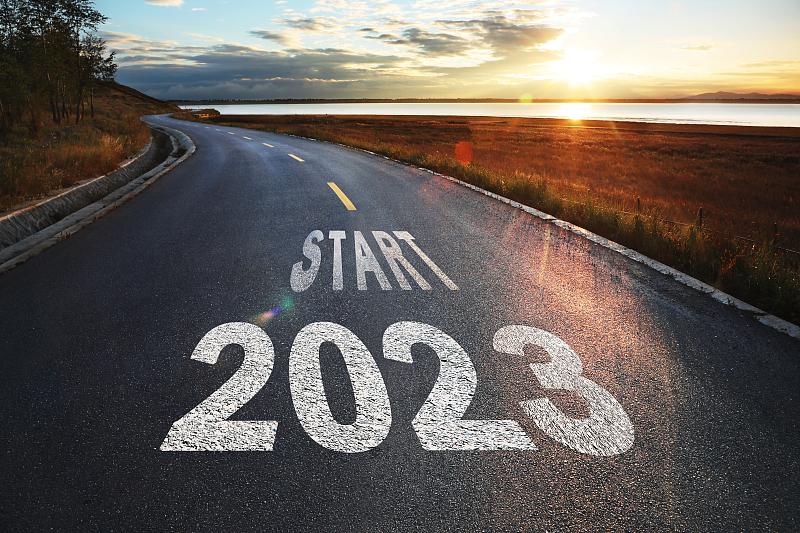Why 2023 marks the return to old world politics
- By Tom Fowdy
 0 Comment(s)
0 Comment(s) Print
Print E-mail China.org.cn, January 10, 2023
E-mail China.org.cn, January 10, 2023

[Photo/cfp.cn]
2023 is here. For most of the world, 2022 was one people want to forget, namely because it marked another year of unprecedented global disruption, challenges, and turmoil. As the planet started to shift away from the impacts of the COVID-19 pandemic, it was struck with a new challenge in the form of the war in Ukraine, which served to exacerbate geopolitical tensions across the board and jeopardize global economic recovery due to unprecedented disruptions to energy and food supply chains.
Yet such challenges are a product of the times we live in. The world has changed, with the global political environment shifting into a new climate of "multipolarity," marking a decisive break with a longstanding period of American hegemony. In assessing such, 2022 in many aspects heralds a return of "the old world," that is, the world of great power competition and uncertainty that defined almost all of human history prior to WWII, and especially so the past two centuries.
Following the collapse of the Soviet Union in 1991, many political theorists and commentators basked in the American "victory," believing that the ideology and values of the U.S. had triumphed permanently and irreversibly. Scholar Francis Fukuyama famously dubbed the event "The End of History," whereby he argued liberalism was the final and inevitable stage of human governance. This equated with absolute American unipolarity over the entire world, and it was anticipated all other countries would simply transition to adopting the U.S.'s political model.
That world is now long gone. Not only did these assumptions fail to materialize, but America's global standing declined in the face of multiple crises that beset it, including the 2008 global financial crisis and the COVID-19 pandemic, alongside the rise of China as an economic powerhouse. These changing circumstances led to a change in the mood in Washington, with politicians now perceiving U.S. unipolarity not as a historical inevitability but something that must be fought and won for. In doing so, its view of globalization changed, from seeing it as a positive means of spreading American influence and values to now something that empowers rival countries and places the U.S. at a disadvantage.
Thus, by the turn of the late 2010s, the United States made a foreign policy shift that placed emphasis on "strategic competitors" and escalated tensions with China. In addition, the U.S. has sought to aggressively rewrite global supply chains, particularly in the field of high-end technologies and renewables, to be centered around itself so that it may continue to dominate the global economy and suppress the rise of China. Such a strategy has also sought to block allies from economically integrating with perceived adversarial countries, such as China and Russia, be it in the field of technology, energy, trade, or investment. To this end, America has increasingly provoked geopolitical conflict to assert influence.
In this regard, 2022 was decisive in shaping a new geopolitical context. Although these trends have been long developing and effectively began to emerge with the election of Donald Trump in 2016, 2022 was a "turning point," owing to the outbreak of the conflict in Ukraine, which led to a dramatic change in the geopolitical atmosphere. Hopes of global integration, multilateralism, and co-existence were significantly dashed by the conflict's ramifications, which allowed the United States to reassert itself as a security player in Europe, force allies to take sides on a broader scale, and lead to an atmosphere of wider geopolitical conflict, militarization, and the "security dilemma."
Likewise, the United States has used the consequences of the war to push for greater confrontation against China. All in all, this means the world enters 2023 with increased uncertainty, insecurity, and geopolitical tensions. The biggest priority and challenge for countries in entering the new year must be to keep ties open, prevent securitization from destroying people-to-people and trade cooperation, and avoid escalation of ideological and military tensions.
Ultimately, the United States is seeking to carve up the geopolitical environment in order to consolidate its unilateral status, which poses great risks to the international community as a whole. Whether the new year will be more optimistic or pessimistic remains to be seen. Yet, there remains a sentiment that, given the events of last year, in many aspects, there is "no going back," and one can only hope cool heads will prevail.
Tom Fowdy is a British political and international relations analyst and a graduate of Durham and Oxford universities. For more information please visit:
http://www.keyanhelp.cn/opinion/TomFowdy.htm
Opinion articles reflect the views of their authors, not necessarily those of China.org.cn.
If you would like to contribute, please contact us at opinion@china.org.cn.





